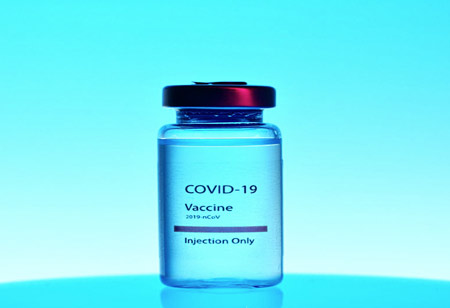Thank you for Subscribing to Healthcare Business Review Weekly Brief
Be first to read the latest tech news, Industry Leader's Insights, and CIO interviews of medium and large enterprises exclusively from Healthcare Business Review
Public Health Initiatives and Their Impact
Public health initiatives are crucial for preventing disease, promoting healthy lifestyles, and ensuring equitable healthcare access.

By
Healthcare Business Review | Friday, February 28, 2025
Stay ahead of the industry with exclusive feature stories on the top companies, expert insights and the latest news delivered straight to your inbox. Subscribe today.
Public health initiatives are crucial for preventing disease, promoting healthy lifestyles, and ensuring equitable healthcare access. They improve community health, boost economic productivity, and strengthen resilience, mainly through vaccination, screenings, and health education programs.
FREMONT, CA: Public health initiatives play an indispensable role in the overall health ecosystem. These programs are created to anticipate, prevent, and combat complex health challenges such as infectious diseases, malnutrition, and chronic illnesses, all while promoting a healthier lifestyle. Aiming to uplift entire populations, these measures go far beyond individual healthcare, actively striving to create healthier communities.
Public health initiatives are critical in disease prevention, health promotion, and equitable access to healthcare. Vaccination campaigns, disease screenings, and sanitation programs have significantly reduced the prevalence of infectious diseases. Global immunization efforts have nearly eradicated diseases such as polio and measles, while large-scale COVID-19 vaccination drives underscored the importance of public health infrastructure and international collaboration in disease control. Beyond prevention, these initiatives also focus on promoting healthier lifestyles. Anti-tobacco campaigns have contributed to a global decline in smoking rates, while programs encouraging physical activity and balanced nutrition help mitigate obesity and cardiovascular diseases. Integrating digital health tools has further enhanced awareness and engagement in preventive healthcare.
Moreover, public health programs address healthcare disparities by prioritizing marginalized communities. Women's health initiatives, reproductive planning services, and nutrition programs for underprivileged populations ensure access to essential care. Maternal and child health programs in developed and developing regions have been instrumental in reducing infant and maternal mortality rates. The impact of these initiatives extends beyond health outcomes, contributing to economic productivity and societal resilience. The eradication of smallpox and the significant reduction in tuberculosis-related deaths highlight the effectiveness of public health strategies. Regular screening programs facilitate early disease detection, improving survival rates for conditions like cancer. Additionally, a healthier population translates to a more productive workforce, as demonstrated by malaria eradication efforts that have boosted economic growth in previously affected regions. Public health preparedness also strengthens community resilience, as evidenced by the response to the COVID-19 pandemic, reinforcing the need for strong and adaptive health frameworks in times of crisis.
Integrating digital health technologies, including telemedicine and artificial intelligence, reshapes public health solutions. Wearable health devices, chronic disease management apps, and data analytics tools enable public health teams to engage broader populations more efficiently. In parallel, global collaborations remain critical, with organizations such as the World Health Organization (WHO) facilitating international partnerships. Initiatives like COVAX, which supported equitable COVID-19 vaccine distribution, underscore the impact of coordinated efforts. Furthermore, sustained investment in research is essential for addressing future health challenges. Breakthroughs in vaccine development, genetic studies, and epidemiological research—exemplified by advancements in mRNA technology—are unlocking new possibilities for combating infectious diseases and enhancing cancer prevention.
Public health initiatives remain a cornerstone of societal well-being. While they face challenges, their ongoing evolution, supported by technological innovations and strategic collaborations, positions them to tackle future health hurdles effectively.






